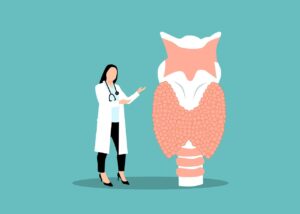Irritable bowel syndrome (IBS)
Irritable bowel syndrome (IBS) is a multi-factorial “disorder of gut-brain interaction” we know that gut brain axis is a bidirectional communication pathway and that IBS is much more than being psychological. IBS is characterized and categorized by alterations in GI transit time which leads to
- Predominantly diarrhea (IBS D)
- Predominantly constipation (IBS-C) or
- Considered unclassified (IBS-U).
It’s a multi factorial disorder of the gut brain interaction in which symptoms manifest due to changes in the GI function and not due to GI structural damage. IBS is actually caused by any combination of things that can disrupt the nervous system in the gut, the production of digestive enzymes, and the muscular reflex system.
Gut inflammation can impact the brain.
- Inflammation can affect neurodevelopment and neurodegeneration
- IBS symptoms often go hand in hand with mood disorders like depression
- Stress can originate in the gut and the mind
Do you know?
Women are more prone to IBS,
Let me explain you How?
Men have lower levels of estrogen and progesterone, so they are less prone to constipation than women. Testosterone has also been shown to have analgesic effects in both men and women. This may be why men are less likely to have IBS than women. This is also why testing testosterone levels is important for both men and women.
IBS Symptoms
- Unexplained abdominal pain
- GI distress
- Altered bowel habits/motility
- Constipation
- Flatulence
- Unexplained weight loss
- Exacerbation of symptoms in response to stress
IBS cause:
IBS is caused by any combinations of things that can disrupt the nervous system in the gut, the production of digestive enzymes and the muscular reflex system. The root causes of IBS are:
- SIBO
- Food intolerances
- Leaky Gut
- Parasites
- Yeast overgrowth
- Zinc or Magnesium deficiency
- Heavy metal toxicity
- Psychosocial stress is associated with IBS and may trigger or exacerbate an increase in gastrointestinal distress. Stress hormones can increase visceral hypersensitivity and negatively affect motility.
Irritable Bowel Syndrome Cure:
We can manage the symptoms by avoiding triggers and following holistic diet and lifestyle such as:
- The Low- FODMAP Diet can be helpful for people for a short period
- Probiotic therapy yields positive results in IBS including a general reduction in symptoms including a reduction in pain and a reduction in symptom severity.
- Eat balanced meals and encourage plain foods without spice, gluten, dairy, alcohol, white flour, sugar and caffeine.
- Chew properly to help with effective digestion
- Following GUT health protocol
- Drink adequate water
- IBS is just not a psychological condition, but rather, IBS can be broken down into psychosocial and physiological components. Mental stress can certainly contribute to IBS. Stress management can help to alleviate the symptoms.
- Practice Mindfulness and meditation.
- Exercise regularly
- Practice yoga
Treat your GUT with love and care, it will reward you with the same.
Say goodbye to digestive discomfort! Click here to access Karishmma Chawla’s expert advice on managing Irritable Bowel Syndrome through tailored nutritional solutions.





